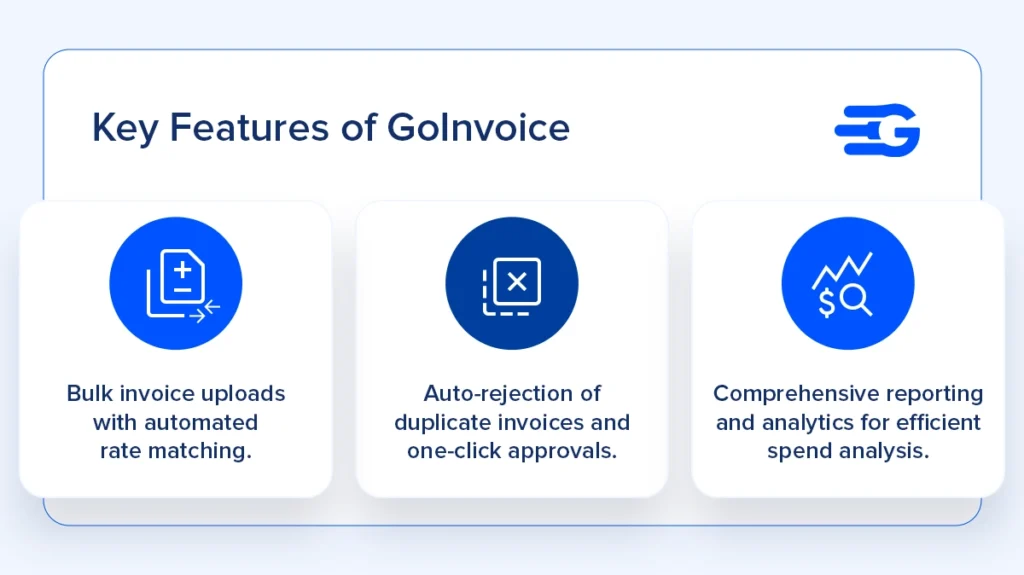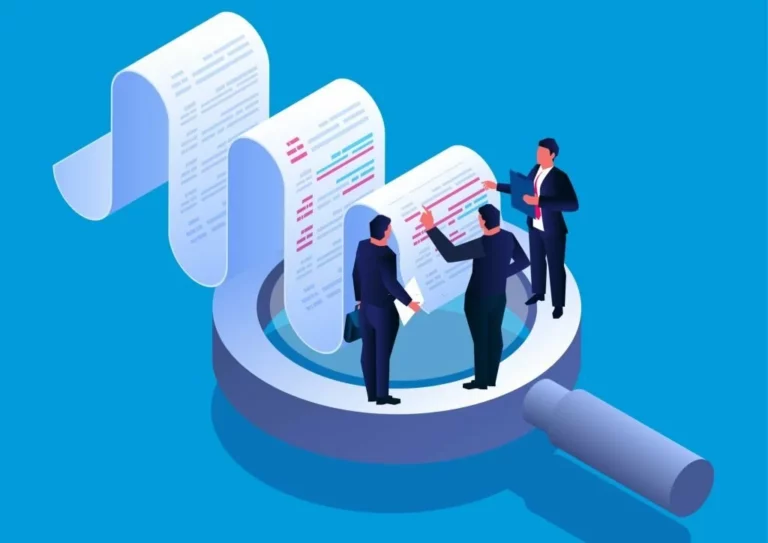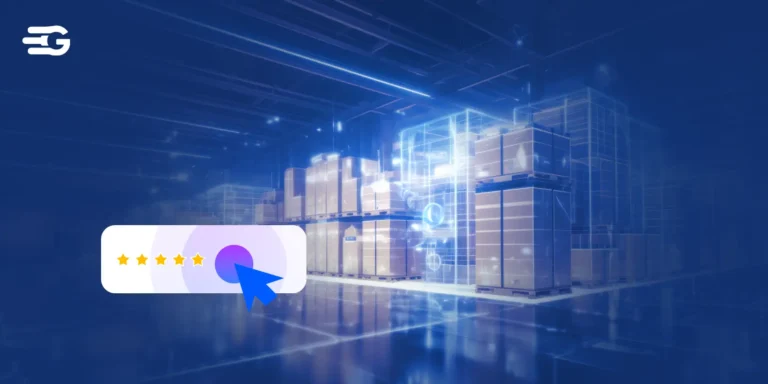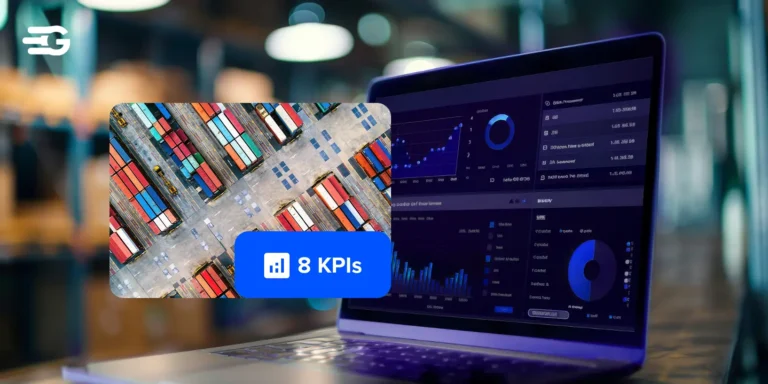Freight Invoice Reconciliation Software: 5 Features You Must Have
Freight invoice reconciliation is a crucial yet often overlooked aspect of supply chain management. With invoices arriving from multiple carriers each with unique rates, formats, and billing terms ensuring accuracy can quickly become a daunting task.
Data mismatches, delayed dispute resolutions, and integration issues with existing systems further complicate the process. Even with modern tools, many companies struggle to overcome these hurdles, making reconciliation a time-consuming and error-prone activity that limits cost control and efficiency.
As global logistics grow increasingly complex, freight invoice reconciliation softwares have become indispensable for streamlining operations, minimizing errors, and optimizing costs. However, choosing the right software requires more than a focus on technical features.
Factors like ease of use, onboarding support, expert-driven design, and transparent pricing play a pivotal role in ensuring success. A 2025 survey by Supply Chain Insights found that 72% of companies using automated freight invoice reconciliation softwares achieved at least a 20% reduction in invoice discrepancies.
This blog dives into the critical challenges of freight invoice reconciliation and explores key features to prioritize when selecting the right freight invoice reconciliation software. By addressing issues such as inconsistent data, rate discrepancies, and integration limitations, businesses can leverage technology and process optimization to streamline operations and enhance their supply chain efficiency.
1. Automated Invoice Matching
Automated invoice matching verifies invoices against shipment data, rate agreements, and contracts in real-time, eliminating the need for manual intervention. This ensures discrepancies such as overcharges, missed discounts, and inaccurate fees are flagged early, saving both time and resources. Businesses often lose millions annually due to errors in manual processing.
GoComet leverages AI-driven automation to enhance accuracy and efficiency, with Gartner’s 2025 Logistics Trends Report highlighting a 30% reduction in invoice processing times for companies adopting such solutions.
2. Seamless Integration Capabilities
Integration allows systems to work cohesively, ensuring data flows seamlessly between your ERP, TMS, and other logistics platforms. This connectivity eliminates data silos, centralizes information, and provides a single source of truth, empowering better decision-making and streamlined workflows.
With GoComet, integration with leading systems such as SAP, Oracle, and Microsoft Dynamics becomes effortless, enabling end-to-end visibility and ensuring real-time synchronization across all operations.
3. Dispute Management Workflow
Efficient dispute management is essential for resolving discrepancies quickly and transparently. Structured workflows enable users to track disputes, set resolution timelines, and maintain audit trails for compliance. Automated notifications keep all stakeholders informed, reducing delays in resolution.
A good invoice reconciliation softwares provides robust tools for dispute management, which, according to a McKinsey study, help businesses resolve issues 40% faster. By enhancing communication and accountability, these solutions strengthen carrier relationships and improve operational efficiency.
4. Reporting and Analytics
Advanced reporting and analytics tools offer deep insights into cost trends, carrier performance, and recurring issues, enabling data-driven decisions. Customizable dashboards provide real-time visibility, while predictive analytics help identify potential overcharges and inefficiencies before they escalate.
Freight invoice reconciliation softwares transform raw data into actionable intelligence, empowering businesses to implement cost-saving strategies. Freightos reports that in 2025, companies leveraging advanced analytics tools achieved a 15% reduction in freight spend, showcasing the power of data-driven operations.
5. Multi-Currency and Multi-Language Support
For global supply chains, handling invoices in multiple currencies and languages is critical to ensuring compliance and reducing delays. Multi-currency support with real-time conversion and localization features simplifies international operations.
By addressing these complexities, freight invoice reconciliation softwares ensure smoother reconciliation and compliance with regional standards. This reduces friction in global logistics and enhances efficiency, making it easier for businesses to manage their international workflows.
Key Benefits of Automated Freight Invoice Reconciliation Software
Automated freight invoice reconciliation softwares offers several advantages that can transform the efficiency of supply chain operations. Below are the key benefits that businesses can leverage to optimize their invoicing processes:
1. Faster Invoice Processing
Automated systems streamline the entire invoice reconciliation process, significantly reducing the time it takes to capture, validate, and approve invoices. By eliminating manual steps and enabling real-time data exchange, businesses can process invoices more efficiently, freeing up resources for other critical tasks.
2. Improved Cash Flow Management
Automation enhances visibility into invoice status, payment timelines, and disputes, which aids in better cash flow forecasting and management. It minimizes the risk of overpayments, late fees, or missed discounts, ensuring that businesses can manage working capital effectively and avoid unnecessary expenses.
3. Reduced Administrative Costs
By eliminating the need for manual intervention in repetitive tasks like data entry and invoice validation, automation reduces labor costs and administrative overhead. This allows businesses to allocate resources to more strategic roles, improving overall operational efficiency while lowering operational expenses.
4. Enhanced Accuracy and Compliance
AI-driven freight invoice reconciliation softwares improve the accuracy of invoice matching and data entry, significantly reducing human error. Built-in compliance checks ensure adherence to regional regulations and standards, while transparent audit trails enhance accountability and simplify audits, reducing the risk of penalties or compliance issues.
GoComet’s Freight Invoice Reconciliation Software
GoComet’s Freight Invoice Reconciliation software is a comprehensive platform designed to tackle key challenges in freight invoicing, enhancing operational efficiency. Here’s how GoComet differentiates itself:
AI-Powered Automated Workflows: Automatically detects discrepancies in invoices, reducing manual errors by up to 80% and saving valuable time.
Seamless System Integration: Integrates with leading ERP systems like SAP, Oracle, and Microsoft Dynamics for real-time synchronization and data flow.
Efficient Dispute Resolution: Simplifies raising and tracking disputes with carriers, ensuring faster resolutions and increased transparency.
Advanced Analytics & Reporting: Provides real-time insights through customizable dashboards, empowering data-driven decisions and optimized freight spending.
Global Support: Handles multi-currency invoicing with live exchange rate updates and supports multiple languages, ensuring smooth operations worldwide.

Why Choose GoComet
While other freight invoice reconciliation softwares provide basic features, GoComet stands out with its AI-powered automation, seamless integration capabilities, and real-time insights, ensuring greater accuracy and efficiency. Here’s how it compares:
Automation: GoComet’s AI-driven automation can reduce manual errors by up to 80%, while competitors typically rely on basic automation or require manual inputs for verification.
Integration: GoComet offers seamless integration with a wide range of ERP systems like SAP and Oracle, allowing for smoother data synchronization across platforms. Many other tools either have limited integrations or require complex setups.
Dispute Resolution: GoComet’s intuitive dispute management interface ensures faster resolutions and transparency, which is a significant improvement over competitors, who often lack integrated dispute tracking.
Global Reach: GoComet supports multi-currency invoicing and languages, ideal for international operations. Many other tools do not offer these features or provide limited regional support.
Schaeffler’s Transition to Operational Excellence with GoComet
Schaeffler, a global leader in motion technology, was grappling with the inefficiencies of its manual freight invoicing system, handling 3,000 to 3,500 invoices monthly across multiple regions. Invoices were often misaligned with contracted rates and arrived in different formats, making verification time-consuming and error-prone.
After implementing GoComet’s GoInvoice module, Schaeffler experienced remarkable improvements:
- 40% Reduction in Invoice Processing Time: Automation features like bulk uploads, rate matching, and duplicate rejection streamlined the process.
- 30% Reduction in Overpayments: Enhanced visibility and faster dispute resolution helped prevent overcharges.
- 25% Reduction in Processing Costs: By eliminating manual tasks and improving operational efficiency, Schaeffler significantly reduced costs.
GoComet’s platform not only simplified Schaeffler’s freight invoice reconciliation but also enabled faster audits, better control over discrepancies, and a more efficient global financial overview.
Selecting the right invoice reconciliation software can significantly enhance your supply chain efficiency. By prioritizing features like automated matching, integration, dispute management, analytics, and global support, you set your business up for long-term success.
In 2025, the logistics industry is moving rapidly toward automation and data-driven strategies. Don’t get left behind and invest in invoice reconciliation software that aligns with your operational needs and future growth plans.






